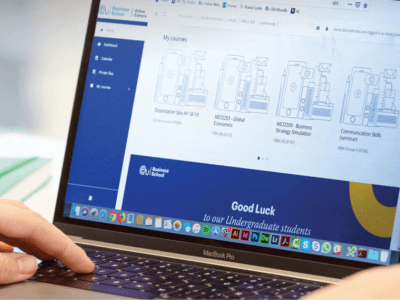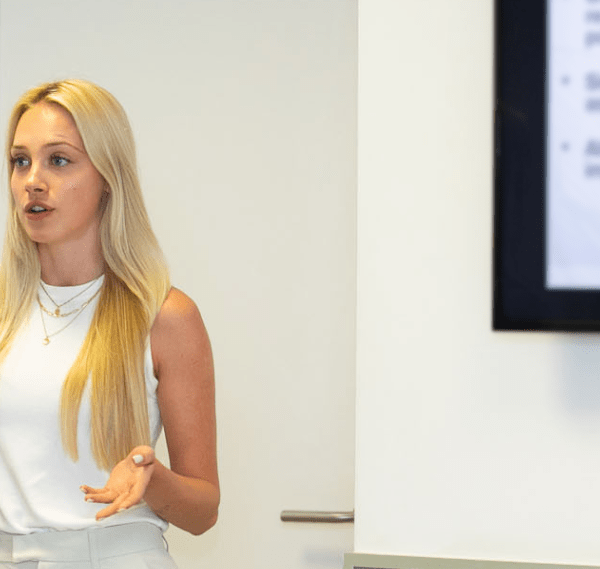Cultivating an Innovator’s Mindset
The word “innovation” comes from the Latin word to renew. So, innovation is essentially a disruptive activity. However, fostering an innovator’s mindset is essential for individuals and organizations to stay competitive and relevant.
This mindset encompasses a set of attitudes, beliefs, skills, and behaviors that enable people to generate new ideas, solve complex problems, and implement creative solutions – in other words, to build new things that have an impact on the market and that can add value for potential customers.
This article explores the key components of an innovator’s mindset, strategies for nurturing it, and its benefits to personal and professional growth.
Key Components of an Innovator’s Mindset
- Curiosity and Open-mindedness: Curiosity drives innovators to explore new possibilities and ask questions that challenge the status quo. Being open-minded allows individuals to consider diverse perspectives and embrace new ideas – to be agile. Innovators are lifelong learners who seek to understand how things work and are always on the lookout for opportunities to learn and grow. Agility rejects the mindset that says, “This is the way we’ve always done it, and it works that way”.
- Risk-taking and Resilience: Innovators are not afraid to take risks and experiment with untested ideas. They understand that failure is a part of the innovation process and they use setbacks as learning experiences. Resilience enables them to persevere through challenges and maintain a positive attitude despite obstacles.
- Creativity and Imagination: Creativity is at the heart of innovation. It involves thinking outside the box and generating novel ideas. Imagination allows innovators to envision future possibilities and develop unique solutions to problems. Cultivating creativity involves breaking free from conventional thinking patterns and encouraging divergent thinking.


- Inclusive Collaboration and Networking: Innovation often results from collaboration and the exchange of ideas. Innovators build strong networks and seek input from others to refine their concepts. Collaborative environments foster a culture of innovation where diverse ideas can flourish, and team members can leverage each other’s strengths.
- Empathy and User-Centred Thinking: Understanding the needs and desires of users – the user experience or UX –– is crucial for developing successful innovations. Empathy allows innovators to put themselves in the shoes of others – the developer experience or DX – and design solutions that address real problems. User-centered thinking ensures that innovations are practical and meet the needs of the target audience.
Strategies for Nurturing an Innovator’s Mindset
- Encourage Curiosity and Lifelong Learning: Organizations and educational institutions can foster curiosity by creating environments that encourage questioning and exploration. By providing access to diverse learning resources, offering professional development opportunities, and promoting a culture of continuous improvement, individuals can stay curious and informed.
- Create Safe Spaces for Experimentation: To nurture innovation, it’s important to create safe spaces where individuals feel comfortable taking risks and experimenting with new ideas. Establishing innovation labs, running hackathons, and encouraging a fail-forward mentality, where failures are seen as valuable learning experiences – a “fail fast” culture – are characteristic of innovative organizations.


- Promote Cross-Disciplinary Collaboration: Innovation often occurs at the intersection of different fields. Encouraging cross-disciplinary collaboration can lead to the generation of novel ideas and solutions. Organizations can facilitate this by forming diverse teams, fostering a culture of knowledge sharing, and promoting open communication channels.
- Provide Time and Resources for Creative Thinking: This can include setting aside time for brainstorming sessions, providing access to innovative tools and technologies, and offering incentives for innovative ideas. Giving individuals the freedom to explore and experiment can lead to breakthrough innovations.
- Implement Design Thinking Methodologies: Design thinking is a user-centered approach to innovation that emphasizes empathy, ideation, prototyping, and testing. By implementing design thinking methodologies, organizations can ensure that their innovations are aligned with user needs and are more likely to succeed. Design thinking workshops and training programs can help individuals develop these skills.
Benefits of an Innovator’s Mindset
- Personal Growth and Fulfilment: Innovators are constantly learning, challenging themselves, and pushing the boundaries of what is possible. This continuous pursuit of knowledge and self-improvement can lead to a greater sense of achievement and satisfaction.
- Professional Success and Career Advancement: Individuals who can think creatively and solve complex problems are sought after by employers. Cultivating these skills can lead to career advancement, increased job satisfaction, and better job performance.


- Organizational Competitiveness and Growth: Innovative companies are better equipped to adapt to changing market conditions, develop new products and services, and maintain a competitive edge. A culture of innovation can also attract top talent and enhance the organization’s reputation.
- Societal Impact and Progress: Innovation has the potential to address some of the world’s most pressing challenges, from healthcare to environmental sustainability. Individuals and organizations with an innovator’s mindset can contribute to societal progress by developing solutions that improve the quality of life and drive positive change.
Final Thoughts
By embracing curiosity, creativity, risk-taking, collaboration, and empathy, individuals and organizations can unlock their innovative potential, an essential strategy in this rapidly changing world.
While most programs offered will emphasize the centrality of innovative thinking to the success of the organization, EU Business School presents two programs with a stronger focus on innovation: the Bachelor of Arts in Digital Business, Design & Innovation; and the Master in Innovation & Entrepreneurship. Through both of these programs, young business leaders will develop the skills, adaptability, and curiosity not just to keep up with evolution, but also to think ahead and drive change.










